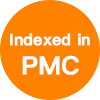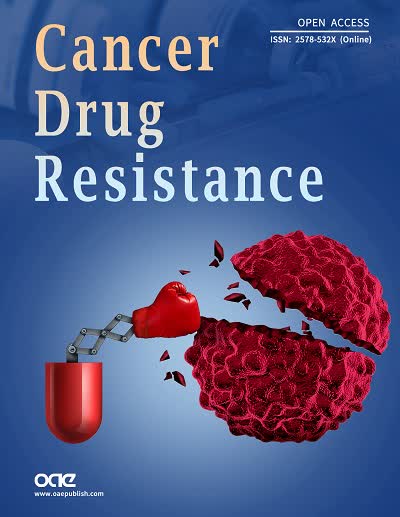REFERENCES
1. O’connor TM, O’halloran DJ, Shanahan F. The stress response and the hypothalamic-pituitary-adrenal axis: from molecule to melancholia. QJM 2000;93:323-33.
2. Smith SM, Vale WW. The role of the hypothalamic-pituitary-adrenal axis in neuroendocrine responses to stress. Dialogues Clin Neurosci 2006;8:383-95.
4. Chung S, Son GH, Kim K. Circadian rhythm of adrenal glucocorticoid: Its regulation and clinical implications. Biochim Biophys Acta 2011;1812:581-91.
5. Oakley RH, Cidlowski JA. The Biology of the Glucocorticoid Receptor: New Signaling Mechanisms in Health and Disease. J Allergy Clin Immunol 2013;132:1033-44.
6. Newton R, Holden NS. Separating transrepression and transactivation: A distressing divorce for the glucocorticoid receptor? Mol Pharmacol 2007;72:799-809.
7. Kadmiel M, Cidlowski JA. Glucocorticoid receptor signaling in health and disease. Trends Pharmacol Sci 2013;34:518-30.
8. Newton R. Molecular mechanisms of glucocorticoid action: what is important? Thorax 2000;55:603-13.
10. Grunberg SM. Antiemetic activity of corticosteroids in patients receiving cancer chemotherapy: dosing, efficacy, and tolerability analysis. Ann Oncol 2007;18:233-40.
11. Charmandari E, Tsigos C, Chrousos G. Endocrinology of the stress response. Annu Rev Physiol 2005;67:259-84.
12. Cole SW, Sood AK. Molecular Pathways: Beta-Adrenergic Signaling in Cancer. Clin Cancer Res 2012;18:1201-06.
13. McGrogan BT, Gilmartin B, Carney DN, McCann A. Taxanes, microtubules and chemoresistant breast cancer. Biochim Biophys Acta 2008;1785:96-132.
14. Flint MS, Kim G, Hood BL, Bateman NW, Stewart NA, et al. Stress hormones mediate drug resistance to paclitaxel in human breast cancer cells through a CDK-1-dependent pathway. Psychoneuroendocrinology 2009;34:1533-41.
15. Reeder A, Attar M, Nazario L, Bathula C, Zhang A, et al. Stress hormones reduce the efficacy of paclitaxel in triple negative breast cancer through induction of DNA damage. Br J Cancr 2015;112:1461-70.
17. Jenkins FJ, Van Houten B, Bovbjerg DH. Effects on DNA Damage and/or Repair Processes as Biological Mechanisms Linking Psychological Stress to Cancer Risk. J Appl Biobehav Res 2014;19:3-23.
18. Flaherty RL, Owen M, Fagan-Murphy A, Intabli H, Healy D, et al. Glucocorticoids induce production of reactive oxygen species/reactive nitrogen species and DNA damage through an iNOS mediated pathway in breast cancer. Breast Cancer Res 2017;19.
19. Flint MS, Baum A, Chambers WH, Jenkins FJ. Induction of DNA damage, alteration of DNA repair and transcriptional activation by stress hormones. Psychoneuroendocrinology 2007;32:470-9.
20. Mattern J, Buchier MW, Herr I. Cell cycle arrest by glucocorticoids may protect normal tissue and solid tumors from cancer therapy. Cancer Biol Ther 2007;6:1345-54.
21. Feng Z, Liu L, Zhang C, Zheng T, Wang J, et al. Chronic restraint stress attenuates p53 function and promotes tumorigenesis. Proc Natl Acad Sci U S A 2012;109:7013.
22. Mechetner E, Kyshtoobayeva A, Zonis S, Kim H, Stroup R, et al. Levels of multidrug resistance (MDR1) P-glycoprotein expression by human breast cancer correlate with in vitro resistance to taxol and doxorubicin. Clin Cancer Res 1998;4:389-98.
23. Su F, Ouyang N, Zhu P, Ouyang N, Jia W, et al. Psychological stress induces chemoresistance in breast cancer by upregulating mdr1. Biochem Biophys Res Commun 2005;329:888-97.
24. Yao H, Duan Z, Wang M, Awonuga AO, Rappolee D, et al. Adrenaline induces chemoresistance in HT-29 colon adenocarcinoma cells. Cancer Genet Cytogenet 2009;190:81-7.
25. Sui M, Chen F, Chen Z, Fan W. Glucocorticoids interfere with therapeutic efficacy of paclitaxel against human breast and ovarian xenograft tumors. Int J Cancer 2006;119:712-7.
26. Fan W, Sui M, Huang Y. Glucocorticoids selectively inhibit paclitaxel-induced apoptosis: mechanisms and its clinical impact. Curr Med Chem 2004;11:403-11.
27. Moran TJ, Gray S, Mikosz CA, Conzen SD. The glucocorticoid receptor mediates a survival signal in human mammary epithelial cells. Cancer Res 2000;60:867-72.
28. Schorr K, Furth PA. Induction of bcl-xl Expression in Mammary Epithelial Cells Is Glucocorticoid-dependent but not Signal Transducer and Activator of Transcription 5-dependent. Cancer Res 2000;60:5950-3.
29. Wu W, Chaudhuri S, Brickley DR, Pang D, Karrison T, et al. Microarray analysis reveals glucocorticoid-regulated survival genes that are associated with inhibition of apoptosis in breast epithelial cells. Cancer Res 2004;64:1757-64.
30. Mikosz CA, Brickley DR, Sharkey MS, Moran TW, Conzen SD. Glucocorticoid receptor-mediated protection from apoptosis is associated with induction of the serine/threonine survival kinase gene, sgk-1. J Biol Chem 2001;276:16649-54.
31. Wu W, Pew T, Zou M, Pang D, Conzen SD. Glucocorticoid receptor-induced MAPK phosphatase-1 (MPK-1) expression inhibits paclitaxel-associated MAPK activation and contributes to breast cancer cell survival. J Biol Chem 2005;280:4117-24.
32. Melhem A, Yamada SD, Fleming GF, Delgado B, Brickley DR, et al. Administration of glucocorticoids to ovarian cancer patients is associated with expression of the anti-apoptotic genes SGK1 and MKP1/DUSP1 in ovarian tissues. Clin Cancer Res 2009;15:3196-204.
33. Sorrentino G, Ruggeri N, Zannini A, Ingallina E, Bertolio R, et al. Glucocorticoid receptor signalling activates YAP in breast cancer. Nat Commun 2017;8:14073.
34. Dilruba S, Kalayda GV. Platinum-based drugs: past, present and future. Cancer Chemother Pharmacol 2016;77:1103-24.
35. Costanzo ES, Sood AK, Lutgendorf SK. Biobehavioral Influences on Cancer Progression. Immunol Allergy Clin North Am 2011;31:109-32.
36. Kang Y, Nagaraja AS, Armaiz-Pena GN, Dorniak PL, Hu W, et al. Adrenergic Stimulation of DUSP1 Impairs Chemotherapy Response in Ovarian Cancer. Clin Cancer Res 2016;22:1713-24.
37. Shen J, Zhang Y, Yu H, Shen B, Liang Y, et al. Role of DUSP1/MKP1 in tumorigenesis, tumor progression and therapy. Cancer Med 2016;5:2061-8.
38. Watts S, Prescott P, Mason J, Mcleod N, Lewith G. Depression and anxiety in ovarian cancer: a systematic review and meta-analysis of prevalence rates. BMJ Open 2015;5:e007618.
39. Watkins JL, Thaker PH, Nick AM, Ramondetta LM, Kumar S, et al. Clinical impact of selective and nonselective beta-blockers on survival in patients with ovarian cancer. Cancer 2015;121:3444-51.
40. Stringer-Reasor EM, Baker GM, Skor MN, Kocherginsky M, Lengyel E, et al. Glucocorticoid receptor activation inhibits chemotherapy-induced cell death in high-grade serous ovarian carcinoma. Gynecol Oncol 2015;138:656-62.
41. Chen YX, Wang Y, Fu CC, Diao F, Song LN, et al. Dexamethasone enhances cell resistance to chemotherapy by increasing adhesion to extracellular matrix in human ovarian cancer cells. Endocr Relat Cance 2010;17:39-50.
42. Li Z, Dong J, Zou T, Du C, Li S, et al. Dexamethasone induces docetaxel and cisplatin resistance partially through up-regulating Kruppel-like factor 5 in triple-negative breast cancer. Oncotarget 2017;8:11555-65.
43. Zheng HQ, Zhou Z, Huang J, Chaudhury L, Dong JT, et al. Kruppel-like factor 5 promotes breast cell proliferation partially through upregulating the transcription of fibroblast growth factor binding protein 1. Oncogene 2009;28:3702-13.
44. Xia H, Wang C, Chen W, Zhang H, Chaudhury L, et al. Kruppel-like factor 5 transcription factor promotes microsomal prostaglandin E2 synthase 1 gene transcription in breast cancer. J Biol Chem 2013;288:26731-40.
45. Liu R1, Zheng HQ, Zhou Z, Dong JT, Chen C. KLF5 promotes breast cell survival partially through fibroblast growth factor-binding protein 1-pERK-mediated dual specificity MKP-1 protein phosphorylation and stabilization. J Biol Chem 2009;284:16791-8.
46. Shi M, Du L, Liu D, Qian L, Hu M, et al. Glucocorticoid regulation of a novel HPV-E6-p53-miR-145 pathway modulates invasion and therapy resistance of cervical cancer cells. J Pathol 2012;228:148-57.
47. Lu YS, Yeh PY, Chuang SE, Gao M, Kuo ML, et al. Glucocorticoids enhance cytotoxicity of cisplatin via suppression of NF-{kappa}B activation in the glucocorticoid receptor-rich human cervical carcinoma cell line SiHa. J Endocrinol 2006;188:311-9.
48. Wang H, Wang Y, Rayburn ER, Hill DL, Rinehart JJ, et al. Dexamethasone as a chemosensitizer for breast cancer chemotherapy: Potentiation of the antitumor activity of adriamycin, modulation of cytokine expression, and pharmacokinetics. Int J Oncol 2007;30:947-53.
49. Herr I, Ucur E, Herzer K, Okouoyo S, Ridder R, et al. Glucocorticoid cotreatment induces apoptosis resistance toward cancer therapy in carcinomas. Cancer Res 2003;63:3112-20.
50. Petrella A, Ercolino SF, Festa M, Gentilella A, Tosco A, et al. Dexamethasone inhibits TRAIL-induced apoptosis of thyroid cancer cells via Bcl-xL induction. Eur J Cancer 2006;42:3287-93.
51. Yang N, Zhang H, Si-Ma H, Fu Y, Zhao W, et al. Dexamethasone decreases hepatocellular carcinoma cell sensitivity to cisplatin-induced apoptosis. Hepatogastroenterology 2011;58:1730-5.
52. Gassler N, Zhang C, Wenger T, Schnabel PA, Dienemann H, et al. Dexamethasone-induced cisplatin and gemcitabine resistance in lung carcinoma samples treated ex vivo. Br J Cancer 2005;92:1084-8.
53. Zhang C, Marmé A, Wenger T, Gutwein P, Edler L, et al. Glucocorticoid-mediated inhibition of chemotherapy in ovarian carcinomas. Int J Oncol 2006;28:551-8.
54. Zhang C, Kolb A, Büchler P, Cato AC, Mattern J, et al. Corticosteroid co-treatment induces resistance to chemotherapy in surgical resections, xenografts and established cell lines of pancreatic cancer. BMC Cancer 2006;6:61.
55. Yang F, Teves SS, Kemp CJ, Henikoff S. Doxorubicin, DNA torsion, and chromatin dynamics. Biochim Biophys Acta 2014;1845:84-9.
56. Chikamori K, Grozav AG, Kozuki T, Grabowski D, Ganapathi R, et al. DNA Topoisomerase II Enzymes as Molecular Targets for Cancer Chemotherapy. Curr Cancer Drug Targets 2010;10:758-71.
57. Thorn CF, Oshiro C, Marsh S, Hernandez-Boussard T, McLeod H, et al. Doxorubicin pathways: pharmacodynamics and adverse effects. Pharmacogenetics Genomics 2011;21:440-6.
58. Octavia Y, Tocchetti CG, Gabrielson KL, Janssens S, Crijns HJ, et al. Doxorubicin-induced cardiomyopathy: From molecular mechanisms to therapeutic strategies. J Mol Cell Cardiol 2012;52:1213-25.
59. Gyorffy B, Serra V, Jurchott K, Abdul-Ghani R, Garber M, et al. Prediction of doxorubicin sensitivity in breast tumors based on gene expression profiles of drug-resistant cell lines correlates with patient survival. Oncogene 2005;24:7542-51.
60. Wang Z, Liang S, Lian X, Liu L, Zhao S, et al. Identification of proteins responsible for adriamycin resistance in breast cancer cells using proteomics analysis. Sci Rep 2015;5:9301.
61. Smith L, Watson MB, O’Kane SL, Drew PJ, Lind MJ, et al. The analysis of doxorubicin resistance in human breast cancer cells using antibody microarrays. Mol Cancer Ther 2006;5:2115-20.
62. Doroshow JH, Akman S, Esworthy S, Chu FF, Burke T. Doxorubicin resistance conferred by selective enhancement of intracellular glutathione-peroxidase or superoxide-dismutase content in human mcf-7 breast-cancer cells. Free Radic Res Commun 1991;12:779-81.
63. Wang XJ, Sun Z, Villeneuve NF, Zhang S, Zhao F, et al. Nrf2 enhances resistance of cancer cells to chemotherapeutic drugs, the dark side of Nrf2. Carcinogenesis 2008;29:1235-43.
64. Zhong Y, Zhang F, Sun Z, Zhou W, Li ZY, et al. Drug Resistance Associates With Activation of Nrf2 in MCF-7/DOX Cells, and Wogonin Reverses it by Down-Regulating Nrf2-Mediated Cellular Defense Response. Mol Carcinog 2013;52:824-34.
65. Kim SK, Yang JW, Kim MR, Roh SH, Kim HG, et al. Increased expression of Nrf2/ARE-dependent anti-oxidant proteins in tamoxifen-resistant breast cancer cells. Free Radic Biol Med 2008;45:537-46.
66. Mayerhofer M, Florian S, Krauth MT, Aichberger KJ, Bilban M, et al. Identification of heme oxygenase-1 as a novel BCR/ABL-dependent survival factor in chronic myeloid leukemia. Cancer Res 2004;64:3148-54.
67. Ramos-Gomez M, Kwak MK, Dolan PM, Itoh K, Yamamoto M, et al. Sensitivity to carcinogenesis is increased and chemoprotective efficacy of enzyme inducers is lost in nrf2 transcription factor-deficient mice. Proc Natl Acad Sci U S A 2001;98:3410-5.
68. Rutz HP, Herr I. Interference of glucocorticoids with apoptosis signaling and host-tumor interactions. Cancer Biol Ther 2004;3:715-8.
69. Cook AM, Mcdonnell AM, Lake RA, Nowak AK. Dexamethasone co-medication in cancer patients undergoing chemotherapy causes substantial immunomodulatory effects with implications for chemo-immunotherapy strategies. Oncoimmunology 2016;5:e1066062.
70. Stahn C, Buttgereit F. Genomic and nongenomic effects of glucocorticoids. Nat Clin Pract Rheumato 2008;4:525-33.
71. Namani A, Li YL, Wang XJ, Tang XW. Modulation of NRF2 signaling pathway by nuclear receptors: Implications for cancer. Biochim Biophys Acta 2014;1843:1875-85.
72. Damia G, Broggini M. Platinum Resistance in Ovarian Cancer: Role of DNA Repair. Cancers 2019;11:119.
73. Flaherty RL, Owen M, Fagan-Murphy A, Intabli H, Healy D, et al. Glucocorticoids induce production of reactive oxygen species/reactive nitrogen species and DNA damage through an iNOS mediated pathway in breast cancer. Breast Cancer Res 2017;19:35.
74. Bucsek MJ, Qiao G, MacDonald CR, Giridharan T, Evans L, et al. beta-Adrenergic Signaling in Mice Housed at Standard Temperatures Suppresses an Effector Phenotype in CD8(+) T Cells and Undermines Checkpoint Inhibitor Therapy. Cancer Res 2017;77:5639-51.
75. Nissen MD, Sloan EK, Mattarollo SR. beta-Adrenergic Signaling Impairs Antitumor CD8(+) T-cell Responses to B-cell Lymphoma Immunotherapy. Cancer Immunol Res 2018;6:98-109.












